James McAvoy: Extreme opinions are everywhere
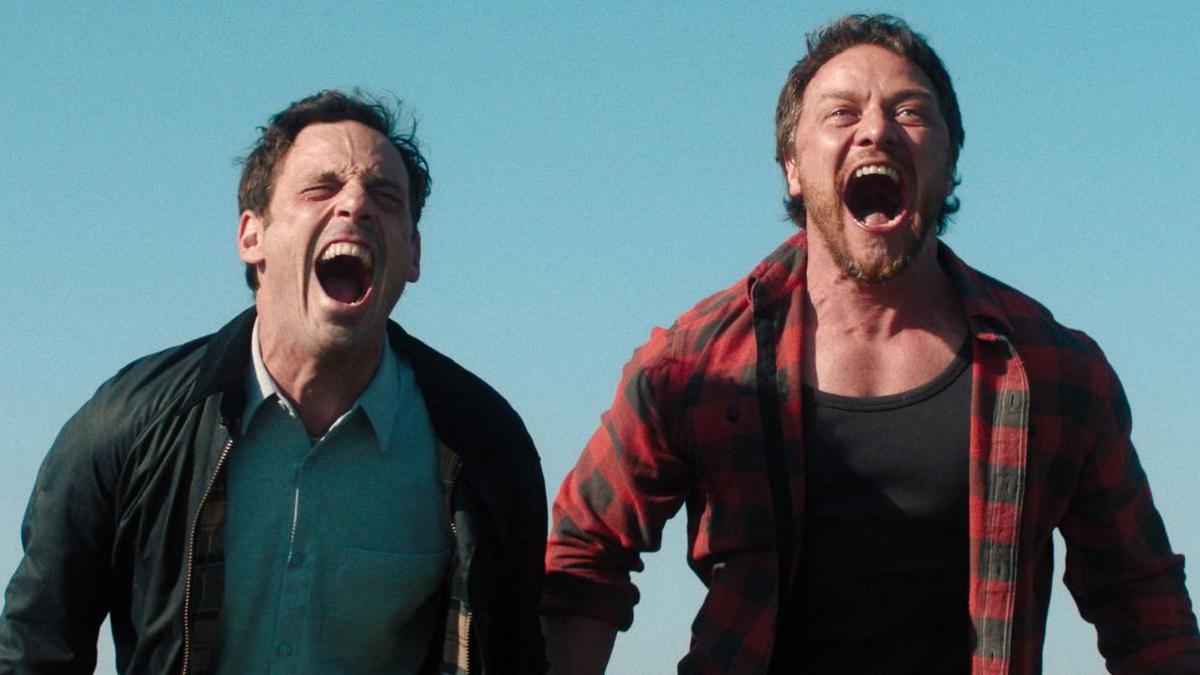
The Hollywood remake of Speak No Evil centres around the toxic masculinity imposed by James McAvoy's Paddy (right) on Scoot McNairy's Ben (left)
- Published
James McAvoy is in no mood to hold back.
Ahead of the release of his new film, Speak No Evil, the Scottish actor is happy to speak frankly to journalists about what drew him to the psychological thriller, and how he feels its themes of toxic masculinity and manipulation reflect the way society is changing.
"It seems to be OK to be more extreme, to be more fundamental, to be less nuanced, to be less compromising," he tells BBC News.
When asked about the impact of social media, and the rise of influencers such as Andrew Tate in fuelling what national police chiefs describe as the "quite terrifying" misogynistic radicalisation of boys and young men, he is equally straightforward.
"It's no surprise that it's happening within the conversation of masculinity," he explains. "I do think that there's a malaise happening across society. People are looking for answers, and sometimes uncompromising, unapologetic, strong-appearing people are easy to gravitate towards," McAvoy says.
That’s what makes his character, Paddy, compelling - a charming, confident yet darkly calculating individual who uses the cloak of social norms and politeness to tighten his toxic grip on those he exploits.
'It stains your brain': How social media algorithms show violence to boys
- Published2 September 2024
The film is based on Christian Tafdrup's dread-inducing 2022 Danish horror film of the same name, which left audiences squirming.
It follows two families with children, including a mute boy, who grow close on holiday and meet up for a weekend on their return. But the seemingly innocuous reunion is undone by a creeping unease that spirals from the edges of deceit into a nightmare of chilling intention.
Critics praised the ambition of Tafdrup's film, which the New York Times, external called "utterly fearless in its mission to unsettle", underpinned by its shocking final scenes.
Its simmering tension and unflinching social commentary on modern apathy, complicity and abused ideals earned a flurry of nominations at Denmark's award season.
Two years on, the Hollywood remake sees Eden Lake director James Watkins reimagine the film through the lens of insidious masculinity.
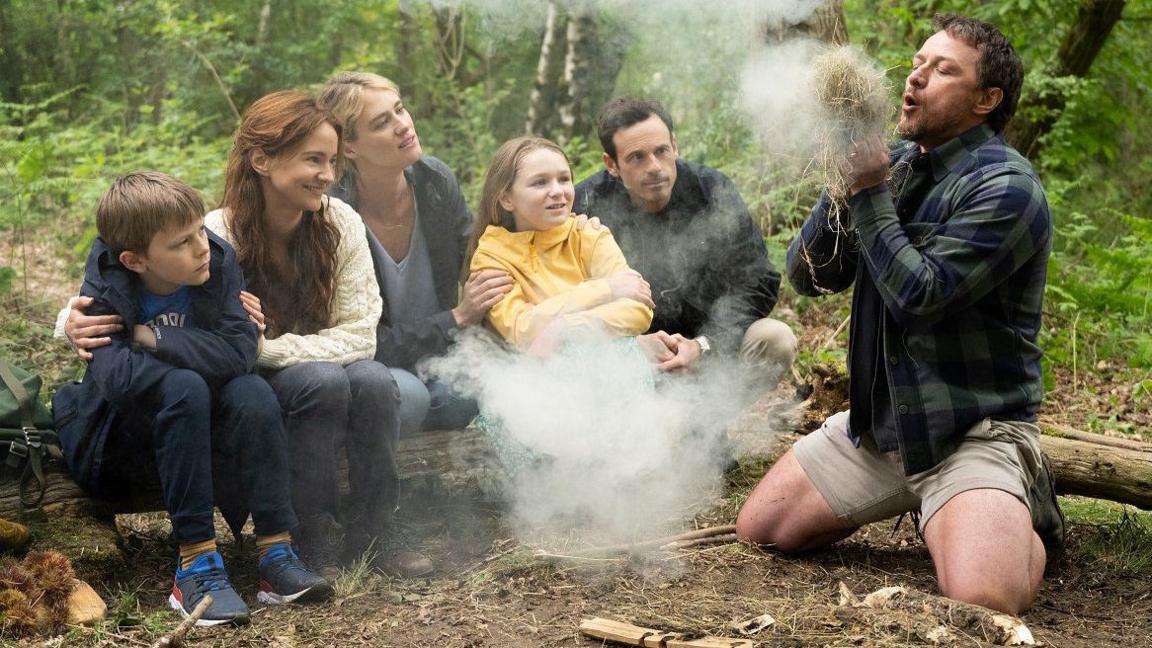
The unspoken tension between the two families stems from the exploitation of social norms by Paddy and his wife Ciara
McAvoy's Paddy, a passionate, gregarious husband to wife Ciara (Aisling Franciosi), exudes an apparent rugged self-assuredness that appeals to American couple Ben (Scoot McNairy) and Louise Dalton (Mackenzie Davis).
Struggling with work worries, marriage difficulties and anxiety over their daughter Agnes (Alix West Lefler), Ben and Louise fail to communicate effectively.
This makes the allure of Paddy particularly strong for Ben, who is struggling to meet traditional masculine expectations.
McAvoy suggests this is how influencers like Tate, who the actor previously told Empire was a direct influence, external on his performance, can offer an apparent solution to disaffected young men who often feel forgotten or vilified in today's landscape.
"They seem to have the answer," he says. "They seem to have success. They seem to be capable of great happiness, which is what Paddy is kind of selling [in Speak No Evil].
"When you're lost, you're looking for somebody who's clearly found themselves and found their own way. So why wouldn't you go with them and try and get the answers?".
But McAvoy makes clear this "simplistic, selfish, fundamental approach to life" is, to him, ultimately "unrealistic... and barbaric".
Family ties
The film's tension between the values we preach and our intentions is one of its central themes.
McAvoy says "walking the tightrope" between public acceptability and the dark self-obsessed "animal version of humanity" is what attracted him to the role.
In a four-star review, the Independent's Clarisse Loughrey wrote, external that while the remake is "cleaner and less daring" than the original, McAvoy's performance is one of the "most impressively repugnant of the year".
She said its "viscerally, uncomfortably familiar take on entitled masculinity" is "delivered with a self-satisfied smile, as a gossamer cover to the violent rage below".
NME's James Mottram similarly praised, external the "gloriously unhinged... off-the-leash" McAvoy as the highlight of a "top-notch" horror-thriller, also awarding four stars.
And Total Film's Jamie Graham, external said Watkins' "shrewd, engrossing and pleasingly nasty" imagining is unafraid to push the source material in new directions, with McAvoy "perfect... for this particular brand of Alpha male brute".
The 45-year-old's varied career is littered with roles that push at the depths of psychology - from playing Macbeth on London’s West End to starring in the film adaptation of Irvine Welsh's Filth and portraying multiple personalities in M Night Shyamalan’s horrors Split and Glass.
But Speak No Evil is his first to take place in a claustrophobic family setting.
Of course, Hollywood has a long history of exploring crises in masculinity and the family unit, namely 1955's Rebel Without A Cause, starring James Dean as an angst-ridden misunderstood teenager adrift from his parents' pre-war values.
But Speak No Evil goes further, delving deeper into the reasons for, and impact of, toxic male behaviour - more openly discussed within the past decade.
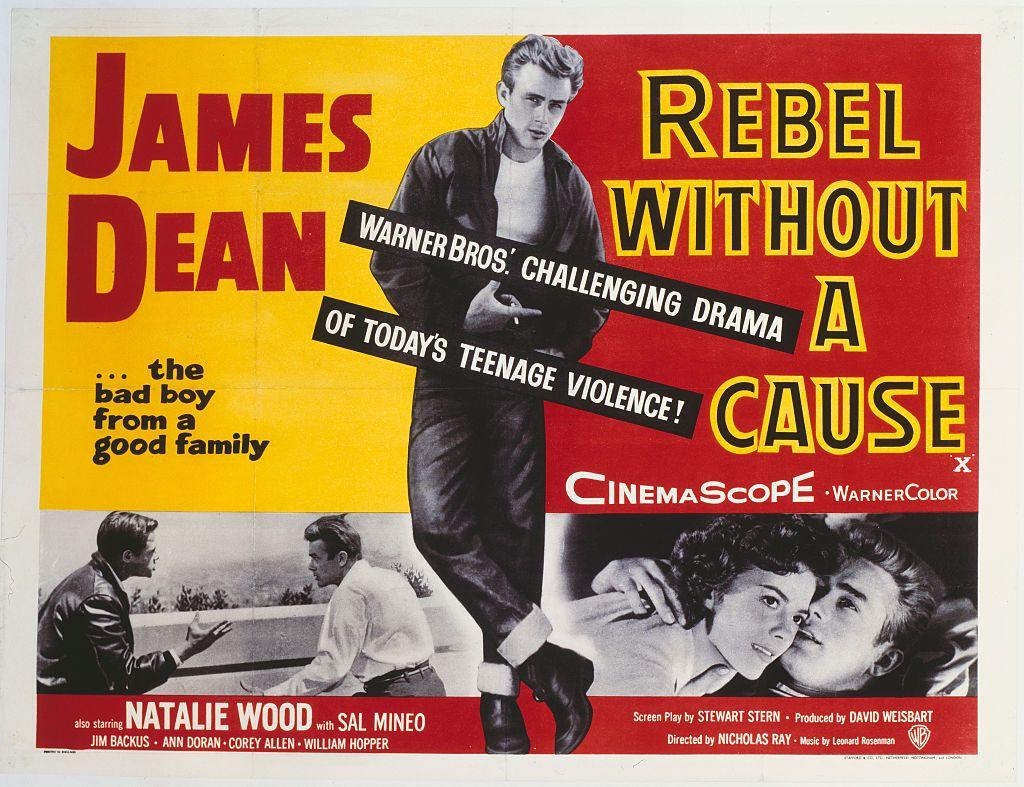
Rebel Without A Cause played on moral panic over the rise of the teenager and generational tensions over post-war family values
Unlike the Danish original, which McAvoy avoided watching before shooting to stay free from influence, Watkins' script addresses how familial cycles of abuse form - explicitly referencing Paddy's trauma at the hands of his father. This repeats through his own violent behaviour towards his mute son, Ant, played by newcomer Dan Hough.
Watkins' version also gives the children a hugely expanded role as part of this exploration - resulting in a markedly different ending to Tafdrup's.
Davis explains that Agnes and Ant embody a "clear channel through which their instincts can flow."
This openness allows them to find ways to communicate and work together in sharp contrast to their parents.
Davis feels it acts as a mirror for the importance of adults getting "back to that place" where they can be as honest and unfiltered as children, who simply say: "'No, I know what's wrong here. And I don't feel safe.'"
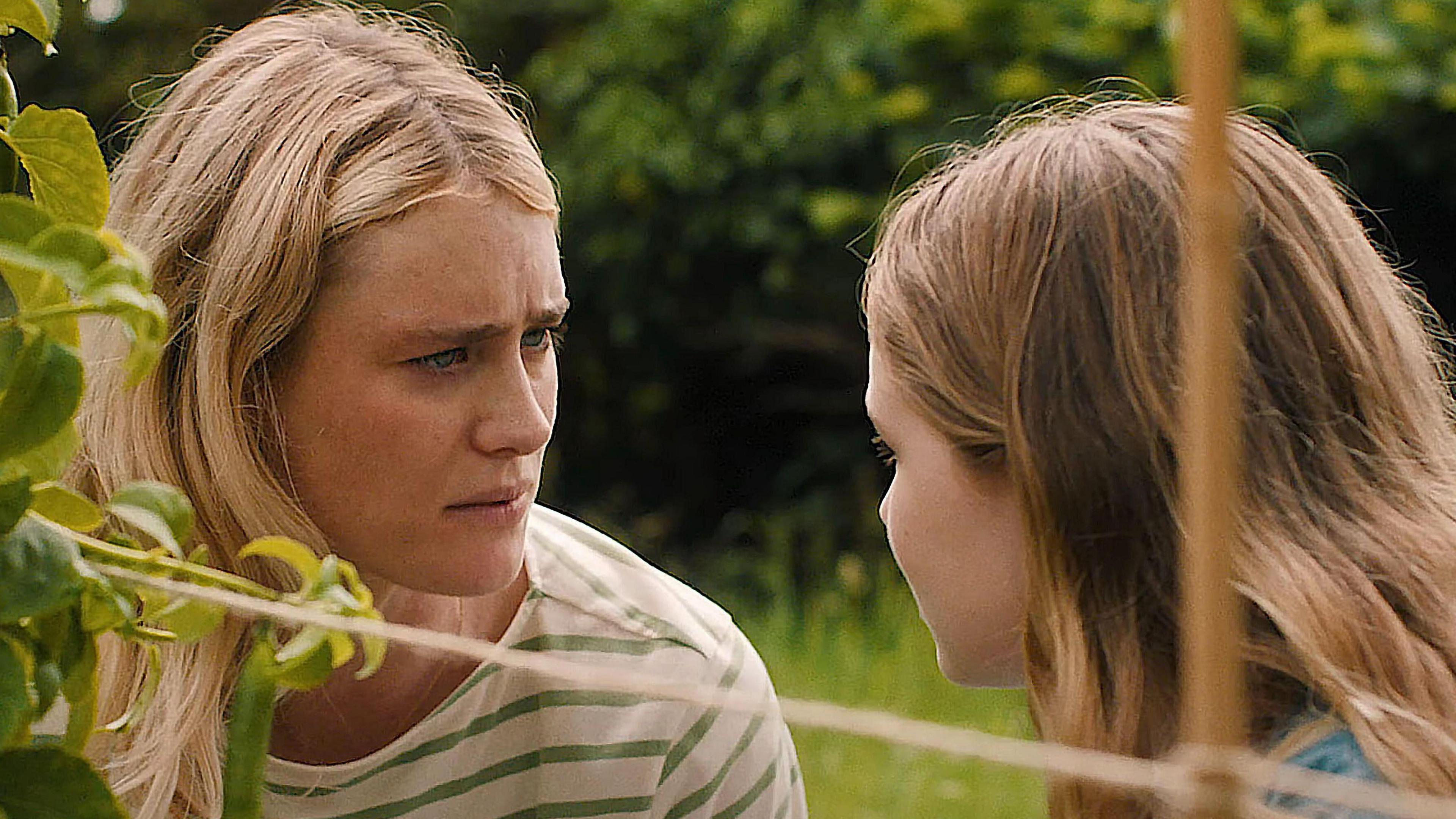
Mackenzie Davis says the film's children, including her character's daughter Agnes (pictured), offer a path to the communication the adults lack
Disability 'reflects social barriers'
The film's touchstones of communication and breaking through barriers of superficiality are ultimately pulled together through Ant's relationship with his disability and his father's abuse.
The trailer reveals he is mute due to an apparent tongue defect, but the reason for his silence is not as it seems.
Ant still attempts to communicate the truth, dropping non-verbal clues wherever possible.
Paddy, as well as being abusive, exploits his son's disability to cover his own tracks by appearing a saintly figure - playing on society's attitudes toward disability.
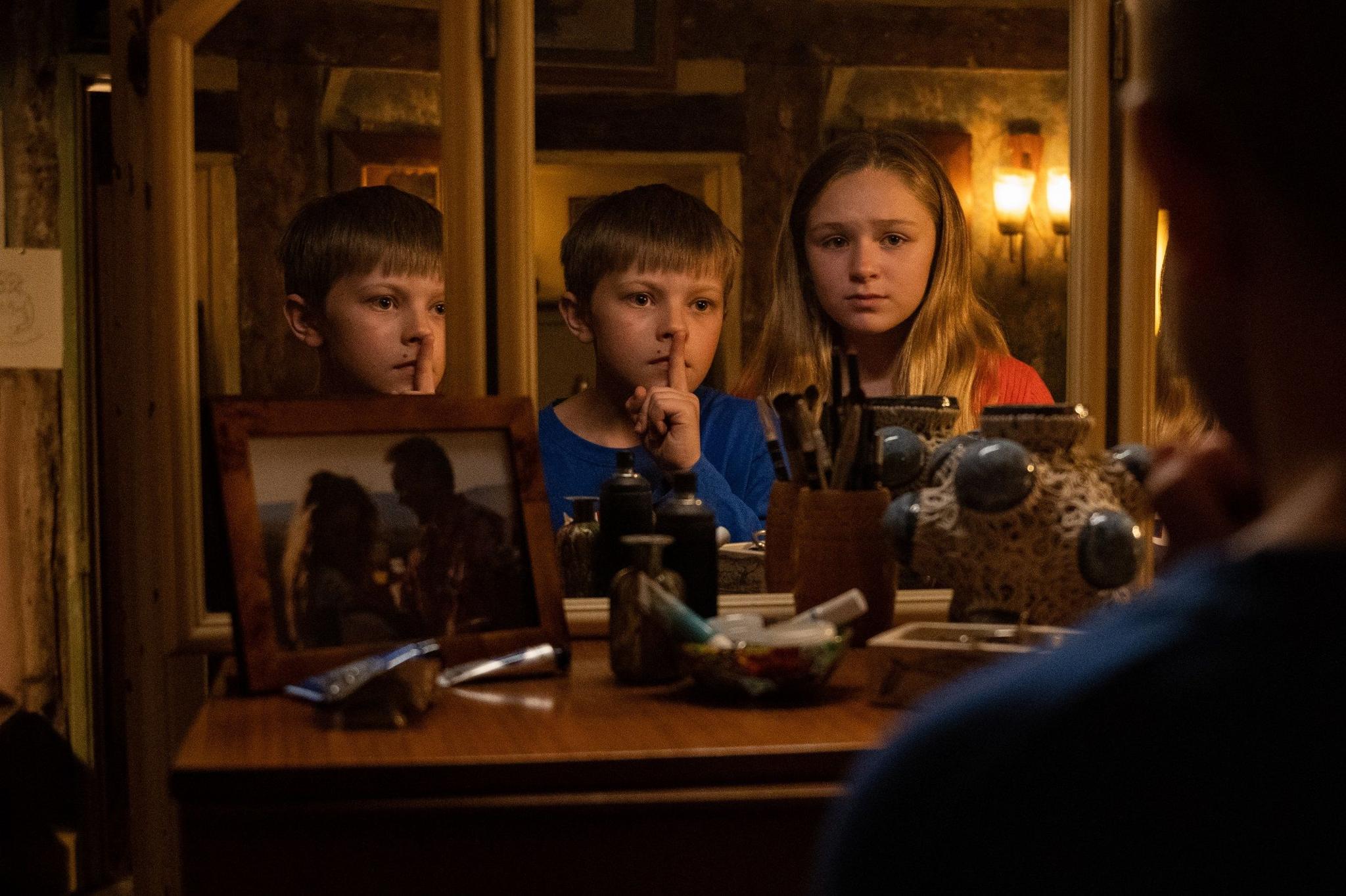
Ant, played by newcomer Dan Hough, holds a much expanded role in the remake, alongside the Daltons' daughter, Agnes
For McAvoy, this resonates on a personal level, shaped by his understanding of disability through his previous work.
The actor has twice played characters who use a wheelchair, most famously as a young Professor Xavier in the X-Men franchise.
However, when, as a wheelchair user myself, I ask him what he learned from the experience, he points me to his first role: portraying Rory O'Shea, a young man with the life-limiting condition Duchenne Muscular Dystrophy in 2004's Inside I'm Dancing.
Today, the film would likely be questioned within the complex debate over non-disabled actors taking on disabled characters.
McAvoy explains he would stay in his wheelchair all day when filming, even off-set, to gain a more authentic awareness of the physical and social obstacles disabled people face.
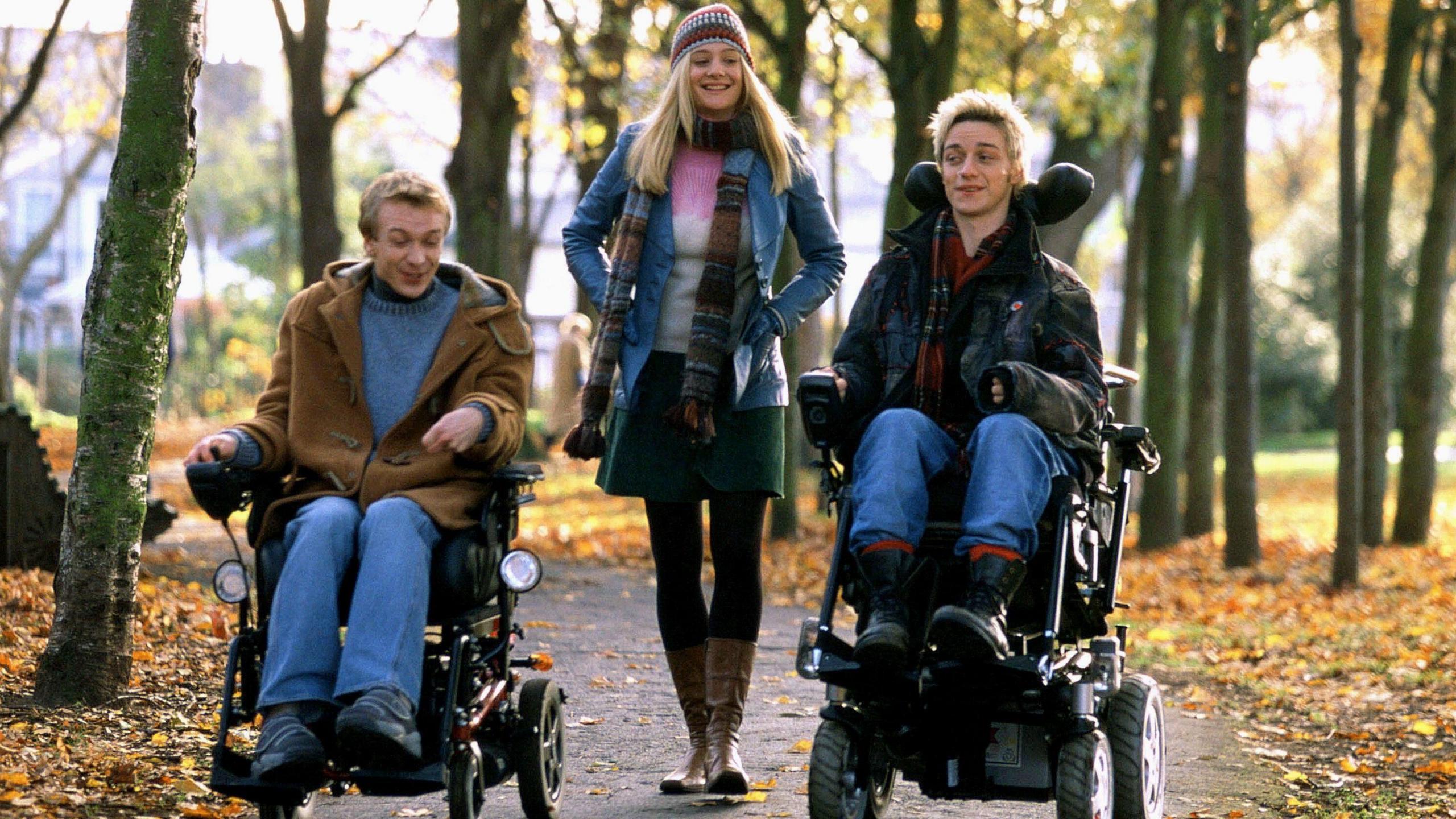
McAvoy (right) used a wheelchair all day, even off set, when portraying wheelchair user Rory O'Shea in 2004's Inside I'm Dancing
He says this exposed him to disingenuous attitudes from many people, who seemed more interested in appearing compassionate rather than genuinely engaging with him.
"I found it was really jarring," he says, "because I just thought: 'OK, I'm sitting here in a wheelchair, but I can talk to you and we can talk about anything you want'.
"Instead of people engaging with somebody who's different or has more physical obstacles in their life than they do, they get almost... scared, and just have the sheen of 'I'm a good person because I can pity you'."
His frustration is clear: "It's a complete barrier to getting anywhere in a relationship or having a conversation that actually means anything."
The heart of these issues remain in Speak No Evil - a film remade for a social media age in which everybody is speaking but nobody is truly listening.